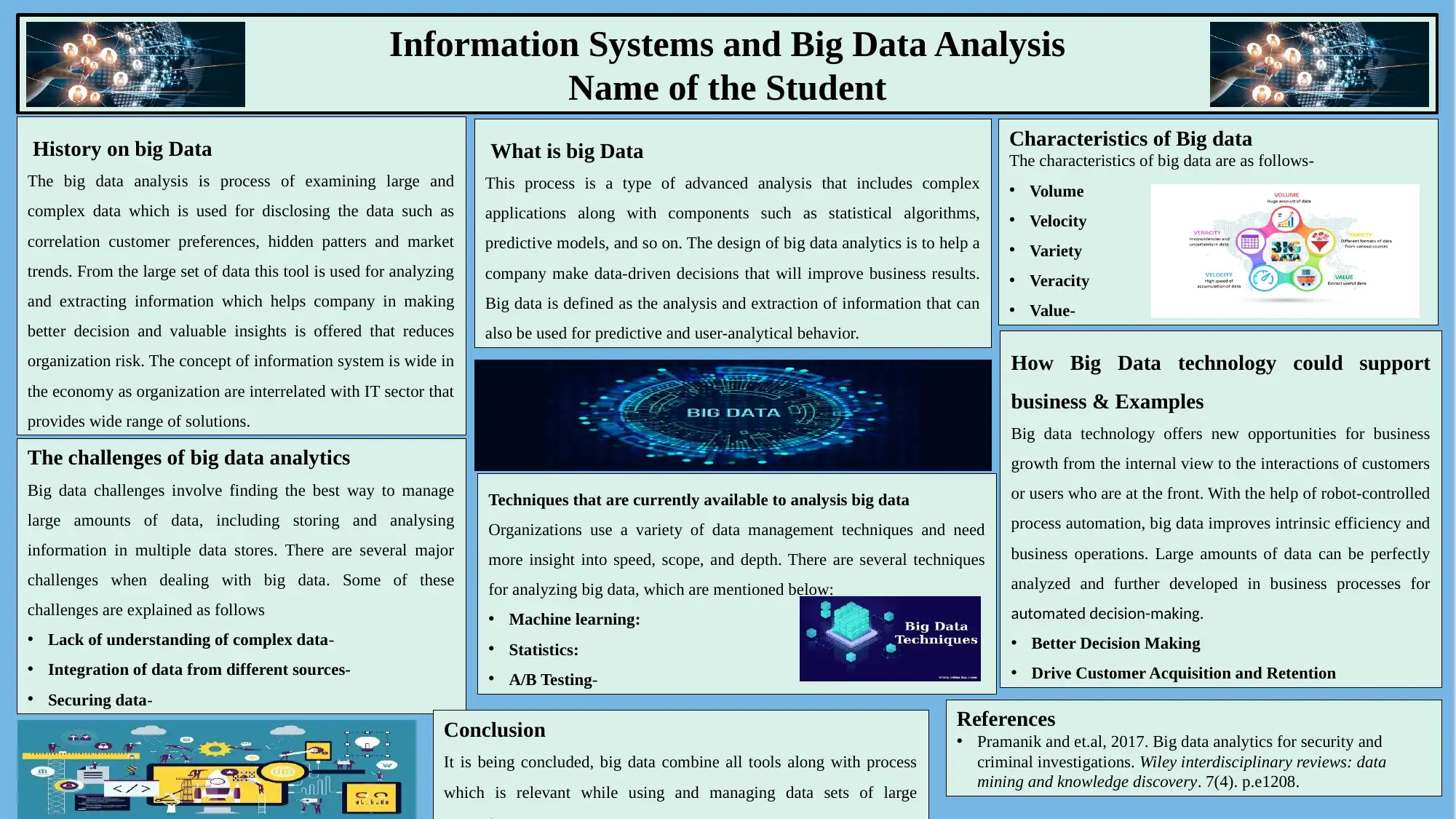Information Systems and Big Data Analysis: Economic Support
VerifiedAdded on 2023/06/17
|1
|454
|224
Report
AI Summary
This report provides an overview of big data analysis within the context of information systems, exploring its characteristics, history, and applications. It defines big data as the analysis and extraction of information for predictive and user-analytical behavior, highlighting key characteristics such as volume, velocity, variety, veracity, and value. The report discusses how big data technology supports the economy by offering new business opportunities and improving customer interactions. It addresses challenges in big data analytics, including the lack of understanding of complex data and the integration of data from different sources, and it outlines various data management techniques like machine learning, statistics, and A/B testing. The report concludes that big data combines all necessary tools and processes for managing large datasets, improving decision-making, driving customer acquisition and retention, and enhancing overall business operations.



![[object Object]](/_next/static/media/star-bottom.7253800d.svg)